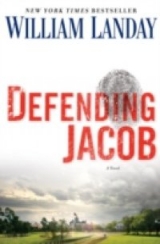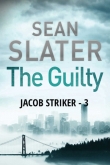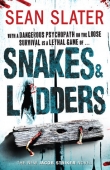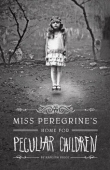
Текст книги "Defending Jacob"
Автор книги: William Landay
Соавторы: William Landay
Жанр:
Криминальные детективы
сообщить о нарушении
Текущая страница: 24 (всего у книги 25 страниц)
37
After-Life
Life goes on, probably too long if we’re being honest about it. In a long life there are thirty or thirty-five thousand days to be got through, but only a few dozen that really matter, Big Days when Something Momentous Happens. The rest-the vast majority, tens of thousands of days-are unremarkable, repetitive, even monotonous. We glide through them then instantly forget them. We tend not to think about this arithmetic when we look back on our lives. We remember the handful of Big Days and throw away the rest. We organize our long, shapeless lives into tidy little stories, as I am doing here. But our lives are mostly made up of junk, of ordinary, forgettable days, and “The End” is never the end.
The day Jacob was exonerated, of course, was a Big Day. But after it, remarkably, the little days just kept on coming.
We did not return to “normal”; we had, all three of us, forgotten what normal was. At least, we had no illusions that we would ever get back to it. But in the days and weeks after Jacob’s release, as the euphoria of our vindication receded, we did fall into a routine, if a barren one. We went out very little. Never to restaurants or other public places where we felt leered at. I took over the grocery shopping, since Laurie would not risk running into the Rifkins at the market again, and I picked up the wifely habit of planning the week’s dinner menus in my head as I shopped (pasta Monday, chicken Tuesday, hamburgers Wednesday…). We went to a few movies, usually midweek when the theaters were less crowded, and even then we made a point of slipping in just as the lights went down. Mostly we loafed around the house. We surfed the Web incessantly, entranced, glassy-eyed. We exercised on the treadmill in the basement rather than jog outside. We upped our Netflix plan so that we had as many DVDs on hand as possible. It sounds dismal, looking back on it, but at the time it felt wonderful. We were free, or something like it.
We considered moving-not to Buenos Aires, alas, but to more prosaic places where we might start again: Florida, California, Wyoming, anywhere we imagined people went to reinvent themselves. For a while I was preoccupied with the little town of Bisbee, Arizona, where I was told it is easy to get lost and stay lost. There was always the possibility of leaving the country too, which had a certain glamor. We got into interminable discussions about all this. Laurie doubted we could outrun the publicity the case had received, no matter how far we moved. Anyway, she said, her whole life was in Boston. For my part, I was eager to move somewhere else. I did not belong to any place to begin with; my home was wherever Laurie was. But I never was able to make much headway with her.
In Newton bad feelings lingered. Most of our neighbors had reached their own verdict: not guilty, but not exactly innocent either. Jacob may not have murdered Ben Rifkin, but they had heard enough to be disturbed by him. His knife, his violent fantasies, his wicked bloodline. To some, the abrupt end of the trial seemed fishy too. The kid’s continued presence in town worried and irritated people. Even the kind ones were not anxious to have Jacob in their children’s lives. Why take a chance? Even if they were ninety-nine percent sure of his innocence, who would risk being wrong when the stakes were so high? And who would risk the stigma of being seen with him? He was a pariah, whether he was actually guilty or not.
With all this, we did not dare send Jacob back to school in Newton. When he had first been indicted and promptly suspended from school, the town had been obliged to hire a home tutor for him, Mrs. McGowan, and we rehired her now to continue homeschooling him. Mrs. McGowan was the only regular visitor to our house, virtually the only one who ever saw the way we actually lived. When she walked in, a bit dowdy and heavy-hipped, her eyes would dance around, taking in the piles of dirty laundry, the unwashed dishes in the kitchen sink, Jacob’s dirty hair. We must have seemed a little crazy to her. But she continued to show up every morning at nine to sit with Jacob at the kitchen table, reviewing his lessons, drubbing him for not doing his homework. “No one’s going to feel sorry for you,” she told him forthrightly. Laurie took an active part in Jacob’s lessons too. She was a remarkable teacher, I thought, patient, kind. I had never actually seen her teach before, but watching her work with Jacob, I thought: she should go back to teaching. She should have been doing it all along.
As the weeks went by, Jacob was quite content in his new solitary life. He was a natural hermit. He did not miss school or his friends, he said. In fact, homeschooling might have suited him best from the start. It gave him the best part of school, the “content” (his word), without the myriad complications of girls, sex, sports, bullies, peer pressure, cliques-the complication of other kids, basically. Jake was just happier alone. After what he’d been through, who could blame him? When we discussed moving, it was always Jacob who was most enthusiastically in favor. The farther, the remoter, the better. Bisbee, Arizona, would suit him fine, he thought. That was Jacob-that equanimity, that poise, half serene, half oblivious. It will sound weird, I know, but Jacob, who always had the most at stake in this case, never broke down and cried, never lost it. Sometimes he would get angry or sullen or introverted, occasionally self-pitying, as all kids do, but he never came apart. Now that the case was over, he was that same even-tempered kid. It was not hard to imagine why his classmates might find his eerie composure a little off-putting. Personally, I found it admirable.
I did not have to work, at least for a while. I was still technically on paid leave from the district attorney’s office. My full salary continued to be direct-deposited to my checking account, as it had been throughout this entire episode. No doubt this was a tricky problem for Lynn Canavan. She had backed the wrong horse. Now she had no excuse to fire me since I had done nothing wrong, but she could not very well bring me back as First Assistant either. Eventually she would have to offer me a position and I would have to refuse it, and that would be the end of it. But in the near term she seemed willing to keep me on the payroll in return for my keeping my mouth shut, which seemed like a small price to pay. I would have kept my mouth shut anyway; I liked her.
Meanwhile, Canavan had bigger fish to fry. She had to figure out what to do about Logiudice, the Rasputin in her court, whose professional implosion had surely ended his own political hopes and, if she was not careful, might end hers too. But, again, she could not fire a prosecutor merely for losing a case, otherwise who would ever be willing to go to work for her? The general view was that Canavan would run for attorney general or even governor soon and leave the whole mess behind for the next DA to clean up. But for the time being, all she could do was watch and wait. Maybe Logiudice could resurrect his reputation somehow. Hey, you never know.
I did not worry much about my own career for the time being. Certainly I was done as a prosecutor. The snickering would have been too much. I suppose I might have gone on as some other kind of lawyer. There was always criminal defense, where the link to Jacob’s case might even have been a badge of honor-the drama of an innocent boy wrongly accused, who had stood up to The Man, or whatever. But it was a little late in the day to be switching sides. I was not sure I could bring myself to defend the same scumbags I had spent a lifetime locking up. Where that left me I had no idea. In limbo, I suppose, like the rest of my family.
Of the three of us, Laurie was the most beaten up by the trial. In the weeks that followed she did recover a little, but she never did return to what she was Before. She never put back on the weight she had lost, and her face would always look drawn to me. It was as if she’d aged ten years in just a few months. But the real change was inside. In those first weeks after Jacob’s trouble, there was a cool, guarded quality about Laurie. She was wary. To me, this new, more cautious manner was understandable. She had been victimized, and she responded the way victims do. It did alter the dynamics of our family-no more Mom warmly imploring Jacob and me, the family involutes, to share our feelings and jabber about our problems and generally turn ourselves inside out for her. She had withdrawn from all that, for a while at least. She watched us from a distance now. I could hardly begrudge her any of this. Damaged at last, my wife had become a little like me, a little harder. Damage hardens us all. It will harden you too, when it finds you-and it will find you.
38
The Policeman’s Dilemma
Northern Correctional Institution,
Somers, Connecticut.
In the visiting booth again. Sealed up in my white-walled compartment, thick glass window in front of me. Steady background noise: murmuring in the adjacent booths, in the distance muted shouts and prison racket, announcements over an intercom.
Bloody Billy shuffled into the window frame, his hands cuffed to a waist chain, a second chain running from his waist down to his cuffed ankles. No matter: he came into the room like a tyrannical king, chin thrust forward, badass sneer, gray hair combed back over his head in a crazy-old-man pompadour.
Two guards piloted him to the chair but without laying a hand on him. One of them released the handcuffs from his waist while the other watched, then they both backed away, out of the window frame.
My father picked up the phone and, with his hands joined at his chin as if in prayer, he said, “Junior!” His tone said, What a pleasant surprise!
“Why did you do it?”
“Do what?”
“Patz.”
His eyes traveled from my face to the phone on the wall and back, reminding me to watch what I said on a monitored line.
“Junior, what are you talking about? I’ve been here the whole time. Maybe you haven’t heard: I don’t get out much.”
I unfolded a Triple-I record, a multistate criminal record. It was several pages long. I palmed it smooth and pressed the front page against the glass with five fingertips for him to read the name: James Michael O’Leary, a.k.a. Jimmy, Jimmy-O, Father O’Leary, DOB 2/18/43.
He leaned forward and squinted at the document. “Never heard of him.”
“Never heard of him? Really?”
“Never heard of him.”
“You did a bid with him right here.”
“A lot of guys come through here.”
“Six years you were here together. Six years!”
He shrugged. “I don’t socialize. It’s jail, not Yale. Maybe if you had a picture or something?” Mischievous wink. “But I never heard of this guy.”
“Well, he’s heard of you.”
Shrug. “Lot of people have heard of me. I’m a legend.”
“He said you asked him to look out for us, to look out for Jacob.”
“Bullshit.”
“To protect us.”
“Bullshit.”
“You sent someone to protect us? You think I need you to protect my kid?”
“Hey, I never said any of that. This is all you talkin’. Like I said, I never heard of this guy. I don’t know what the hell you’re talking about.”
Now, spend enough time in a courthouse and you become a connoisseur of lying. You learn to recognize the various types of bullshit, as Eskimos are said to distinguish different types of snow. The sort of winking denial Billy was indulging here-in which the words I didn’t do it were delivered in a way that announced Of course I did it, but we both know you can’t prove it – must be every criminal’s special delight. To laugh in a cop’s face! Certainly my dirtbag father was enjoying the hell out of it. From the cop’s point of view, there is no sense fighting this sort of confession-denial. You learn to accept this situation. It is part of the game. It is the policeman’s dilemma: sometimes you can’t prove the case without a confession, but you can’t get a confession unless you already have proof.
So I just took the paper down from the glass and dropped it on the little melamine counter in front of me. I sat back and rubbed my forehead. “You fool. You stupid old fool. Do you know what you’ve done?”
“Fool? What are you, calling me a fool? I didn’t do shit.”
“Jacob was innocent! You stupid, stupid old man.”
“Watch your mouth, junior. I don’t have to stay here talking to you.”
“We didn’t need your help.”
“No? Could’ve fooled me.”
“We would have won.”
“And if you didn’t? What then? You want the kid to rot in a place like this? You know what this place is, junior? This is a grave. It’s a garbage dump. It’s a big hole in the ground where they throw the trash nobody wants to see anymore. Anyways, you’re the one who told me that night on the phone, you were going to lose.”
“Look, you can’t-you can’t just-”
“Jesus, junior, keep your dress on, would you? This is fuckin’ embarrassing. Look, I’m not saying anything about what happened, okay? ’Cause I don’t know. Whatever happened to this guy-what’s his name? Patz? – whatever happened to this guy, I don’t know. I’m stuck here in this pit. What the hell do I know? But if you’re asking me to boohoo because some kiddy-raper child-molester piece of shit got killed, or killed himself, or whatever? Forget about it. Good riddance. One less piece of shit in the world. Fuck him. He’s gone.” He held a fist to his mouth and blew into it then blossomed open his fingers, like a magician making a coin disappear. Gone. “One less asshole in the world, that’s all it is. Guy like that, the world’s a better place without him.”
“But with you?”
He glared. “Hey, I’m still here.” He puffed his chest. “It don’t matter what you think of me. I’m still here, junior, whether you like it or not. You can’t get rid of me.”
“Like cockroaches.”
“That’s right, I’m a tough old cockroach. Proud of it.”
“So what did you do? Call in a favor? Or just reach out to an old friend?”
“I told you, I don’t know what you’re talking about.”
“You know, the thing is, it actually took me a while to figure it out. I’ve got a cop friend who told me this guy Father O’Leary was an old leg-breaker and he was still working as a fixer, and when I asked what that meant, a ‘fixer,’ he said, ‘He makes problems go away.’ So that’s what you did, isn’t it? You called an old friend and you made the problem go away.”
No answer. Why should he help me by talking? Bloody Billy understood the policeman’s dilemma as well as I did. No confession, no case; no case, no confession.
But we both knew what went down. We were thinking the exact same thing, I’m sure: Father O’Leary goes over there one night, after a particularly bad day for Jacob in court, and he puts a scare into this fat kid, waves a gun in his face, makes him sign a confession. The kid probably shit his pants before Father O’Leary strung him up.
“Do you know what you’ve done to Jacob?”
“Yeah, I saved his life.”
“No. You took away his day in court. You took away his chance to hear the jury say ‘not guilty.’ From now on, there’ll always be a little doubt. There’ll always be people convinced Jacob is a murderer.”
He laughed. Not a little laugh but a roar. “His day in court? And I’m the fool? Junior, you know what? You’re not as smart as I thought you were.” He laughed some more. Big, crazy, gusting belly laughs. He mimicked me in a high, prissy voice, “ ‘Oh, his day in court!’ Jesus, junior! It’s a wonder you’re out there and I’m in here. How the fuck does that happen? You dumb gavoon.”
“It’s a crazy world. Imagine, them putting a guy like you in prison.”
He ignored me. He leaned forward as if he meant to whisper a secret in my ear through the inch-thick slab of glass. “Listen,” he confided, “you want to get all Dudley Do-Right here? You want to throw your kid back in the shit? Is that what you want, junior? Call the cops. Go ahead, call the cops and tell them this whole crazy story you’ve got about Patz and this guy O’Leary I supposedly know. What do I give a shit? I’m in here for life anyway. You won’t be hurting me. Go on. He’s your kid. Do what you want with him. Like you said, maybe the kid’ll get off. Take your chances.”
“They can’t try Jacob again anyway. Jeopardy’s attached.”
“So? Even better. Sounds like you think this guy O’Leary committed a murder. If I was you, I’d go report it right away. Is that what you’re going to do, Mr. DA Man? Or maybe that won’t look so good for the kid, will it?”
He looked me square in the eyes for a few seconds until I became aware of my own blinking.
“No,” he said, “I didn’t think so. We through here?”
“Yeah.”
“Good. Hey, guard! Guard!”
Two guards ambled over with skeptical faces.
“Me and my son are all done visiting. You guys ever met my son?”
The guards did not answer, did not even glance at me. They seemed to think it was a trick to get them to look away for a second and they were not about to fall for it. Their job was to get the wild animal back into its cage. That was dangerous enough. There was no percentage in breaking protocol.
“All right,” my father said as one of the guards fished around for the key to reattach the cuffs to his harness. “You come back soon, junior. Remember, I’m still your father. I’ll always be your father.” The guards began to rustle him out of the chair but he went right on talking. “Hey,” he said to the guards, “you should get to know this guy. He’s a lawyer. Maybe you guys’ll need a lawyer somed-”
One of the guards pulled the phone from his hand and hung it up. He stood the prisoner up, reattached the handcuffs to his waist chain, then tugged the whole arrangement of chains to make sure he was properly trussed. Billy’s eyes were on me the whole time, even as the guards jostled him. What he saw when he looked at me is anybody’s guess. Probably just a stranger in a window frame. Mr. Logiudice: I’m going to ask you again. And I’m going to remind you, Mr. Barber, you are under oath. Witness: I’m aware of that. Mr. Logiudice: And you are aware we are talking about a murder here. Witness: The M.E. ruled it a suicide. Mr. Logiudice: Leonard Patz was murdered and you know it! Witness: I don’t know how anyone could know that. Mr. Logiudice: And you have nothing to add? Witness: No. Mr. Logiudice: You have no idea what happened to Leonard Patz on October 25, 2007? Witness: None. Mr. Logiudice: Any theories? Witness: No. Mr. Logiudice: Do you know anything at all about James Michael O’Leary, also known as Father O’Leary? Witness: Never heard of him. Mr. Logiudice: Really? You’ve never even heard the name. Witness: Never heard of him.
I remember Neal Logiudice standing there with his arms crossed, smoldering. Once upon a time, I might have patted him on the back, told him, “Witnesses lie. Nothing you can do. Go have a beer, just let it go. All crime is local, Neal-these guys all come back sooner or later.” But Logiudice was not the type to shrug off an insolent witness. Probably he did not give a shit about the Patz murder, anyway. This was not about Leonard Patz.
It was already late afternoon when Logiudice finally forced me into a little harmless perjury. I had been testifying all day, and I was tired. It was April. The days were beginning to get longer. The daylight was just beginning to dim when I said, “Never heard of him.”
By then Logiudice must have known he was not going to restore his own reputation here, least of all by asking for my help. He resigned from the DA’s office soon after. He is a defense lawyer in Boston now. I have no doubt he will make a great defense lawyer too, right up until the day he is disbarred. But for now, I console myself with that image of him in the grand jury room doing a slow burn as his case, and his career, collapsed before his eyes. I like to think of it as the last lesson I ever taught him, my former protege. It’s the policeman’s dilemma, Neal. After a while you get used to it.
39
Paradise
It turns out, you can get used to most anything. What one day seems a shocking, unbearable outrage over time comes to seem ordinary, unremarkable.
As those first few months passed, the insult of Jacob’s trial gradually lost its power to enrage us. We had done all we could. This grotesque thing had happened to our family. We would always be known for it. It would be the first sentence in all our obituaries. And we would always be shaped by the experience, in ways we could not guess at the time. All this began to seem normal, permanent, hardly worth commenting on. And when it did-when we started to get used to our new life as a notorious family, when we finally began to look forward, not back-our family gradually reemerged.
Laurie was the first of us to reawaken. She renewed her friendship with Toby Lanzman. Toby had not reached out to us during the trial, but she was the first of our Newton friends to reconnect with us afterward. Still her old fit, commanding self-same lean runner’s face, same springy, high-rumped body-Toby guided Laurie in a fearsome exercise program that included long, cold jogs along Commonwealth Avenue. Laurie wanted to get stronger, she said. Soon Laurie was driving herself through grueling workouts even without Toby. She would come back from increasingly long runs, red-faced and glistening with sweat in the dead of winter. “Have to get stronger.”
Recovering her role as family captain, Laurie threw herself into the great project of reviving Jacob and me as well. She cooked tremendous breakfasts of waffles or omelettes or hot cereal, and now that we had no jobs to rush off to, we lingered over the newspapers, which Jacob read on his MacBook while Laurie and I shared the newsprint versions of the Globe and the Times. She organized family movie nights and even allowed me to pick the gangster pictures I love, then she suffered good-naturedly as Jacob and I repeated our favorite lines over and over: “Say hello to my leetle friend” and “I didn’t know until this day that it was Barzini all along.” She said that my Brando sounded like Elmer Fudd, which required a trip to YouTube to show Jacob who Elmer Fudd was. How strange to hear ourselves laughing again.
And when all this was not working fast enough, when Jacob and I could not seem to shake the gloom of the last year, Laurie decided that stronger medicine was needed.
“Why don’t we go away for a while?” she said brightly at dinner one night. “We could take a family vacation like we used to.”
It was one of those blindingly obvious ideas that hits you like a revelation. Of course! The moment she suggested it, we knew that of course we had to go. Why had it taken us so long to think of it? Just talking about the idea made us a little giddy.
“That’s brilliant,” I said. “Clear our heads!”
“Push the reset button!” Jacob.
Laurie raised her fists and wiggled them, she was so excited. “I am so sick of all this. I hate this house. I hate this town. I hate the way I feel all day-trapped. I just really want to be someplace else.”
My memory is that the three of us went right to the computer and chose our destination that same night. We picked a resort in Jamaica called Waves. None of us had ever heard of Waves or been to Jamaica. We based the decision on nothing more than the resort’s own website, which dazzled us with fantastically Photoshopped images: palm trees, white-sand beaches, aquamarine ocean. It was all so perfect and so obviously fraudulent that we could not resist it. It was travel porn. There were laughing couples, she toned and tan in her bikini and wrap, he gray at the temples but sporting a full rack of bodybuilder’s abs-the soccer mom and middle manager transformed at Waves into their true inner minx and stud. There was a hotel complex festooned with shutters and verandas, the exteriors brightly painted to evoke a fantasy Caribbean village. The hotel overlooked a network of cerulean swimming pools with fountains and swim-up bars. The Waves logo shimmered on every pool floor. The blue pools spilled from one down to the next until the water reached the edge of a low cliff, and over the edge an elevator descended to a horseshoe-shaped beach and a pristine little cay and, off in the distance, the blue of the ocean stretched all the way out into the endless blue of the sky with no clear horizon line, which would have spoiled the illusion that Waves inhabited the same round planet as everyplace else. It was just the sort of dreamworld we longed to escape into. We did not want to go anyplace “real”; you cannot be in a place like Paris or Rome without thinking, and we wanted most of all not to think. At Waves, happily, it seemed no thought could survive for long. Nothing would be allowed to spoil the fun.
The remarkable thing about all this emotional manipulation was that it actually worked. We actually achieved the traveler’s fantasy of leaving our old selves and all our troubles behind. We were transported, in both senses. Not all at once, of course, but little by little. We felt the weight begin to lift the moment we booked the trip, a nice long two-week stay. Then we felt lighter still when the plane lifted off from Boston, and even more so when we stepped out into the glare and the warm tropical breeze on the tarmac at the little airport in Montego Bay. Already we were different. We were strangely, miraculously, deliriously happy. We looked at one another with surprise, as if to say, Could this be true? Are we really… happy? You will say that we were deluding ourselves; our troubles were no less real. And of course that is true, but so what? We had earned a vacation.
At the airport, Jacob grinned. Laurie held my hand. “It’s paradise!” she beamed.
We made our way through the terminal and out to a small shuttle bus, where a driver held a clipboard with the Waves logo and a list of guests he was supposed to pick up. He looked a little bedraggled in a T-shirt, shorts, and shower sandals. But he grinned at us and he peppered his sentences with “Ya, mahn!” and generally he made a good show of it. “Ya, man!” he said over and over, until we were saying it too. Obviously he had performed this happy-native routine a thousand times. The pasty vacationers ate it up, us included. Ya, man!
The bus ride lasted nearly two hours. We bounced over a crumbling road that roughly followed the north coast of the island. To our right were lush green mountains, to the left, the sea. The poverty of the island was hard to miss. We passed little tumbledown houses and shanties knocked together from scrap wood and corrugated tin. Ragged women and scrawny kids walked along the sides of the road. The vacationers in the bus were subdued during the ride. The natives’ poverty was a bummer and they wanted to be sensitive to it; at the same time they had come for a good time and it wasn’t their fault the island was poor.
Jacob found himself seated on the wide bench at the back of the bus next to a girl about his age. She was pretty in a debate-team way, and the two kids chatted cautiously. Jacob kept his answers short, as if every word was a stick of dynamite. He wore a dumb grin. Here was a girl who did not know anything about the murder, did not even seem aware that Jacob was a geek who could not quite bring himself to look a girl in the eye. (He was proving himself quite capable of looking this girl in the chest, however.) It was all so wonderfully normal, Laurie and I made a point of not staring lest we screw it up for him.
I whispered, “And I figured I’d get laid on this trip before Jacob.”
“My money’s still on you,” she said.
When the bus finally arrived at Waves, we passed through a grand gate, past lush manicured beds of red hibiscus and yellow impatiens, and stopped under a portico at the main entrance to the hotel. Grinning bellmen unpacked the bags. They wore uniforms that combined British military bits-pith helmets blancoed to a dazzling whiteness, black pants with a thick red stripe down the side-and bright flower-print shirts. It was a delirious combination, just right for the army of Paradise, the good-time army.
In the lobby, we checked in. We exchanged our money for the in-house currency of Waves, little silver coins called “sand dollars.” A good-time soldier in a pith helmet served a complimentary rum punch, about which I can tell you only that it contained grenadine (it was bright red) and rum, and I immediately had another, feeling it was my patriotic duty to the pseudonation of Waves. I tipped the soldier, Lord knew how much since the exchange rate for sand dollars was a nebulous thing, but the tip must have been generous because he pocketed the coin and said, “Ya, man,” illogically but happily. From there, my memory of the first day gets a little fuzzy.
And the second.
I apologize for the silly tone, but the truth is we were damn happy. And relieved. With the strain of the previous year finally removed, we got a little silly. I know this story is all a very solemn business. Ben Rifkin had still been murdered, even if it had not been by Jacob. And Jacob had only been saved by the intervention of a second murder arranged by a deus ex prison-a secret only I was aware of. And of course, as the accused, we were still widely presumed guilty of something and so we had no right to be happy anyway. We had taken to heart Jonathan’s very strict instructions never to laugh or smile in public, lest anyone think we were not treating the situation with the proper gravity, lest they think we were anything less than shattered. Now, finally, we exhaled and, in our exhaustion, we felt intoxicated even when we weren’t. We did not feel like murderers at all.
We spent our first few mornings at the beach, afternoons at one of the many pools. Every evening the resort offered some sort of entertainment. This might be a musical show or karaoke or a talent contest for the guests. Whatever the format, the staff exhorted us to have the most extroverted sort of fun. They would call from the stage in lilting island accents, “Come on, ev-ry-bah-dy, make some noise!” and we guests would clap and cheer with maximum gusto. Afterward there would be dancing. A good dose of Waves punch was required to get through it.








